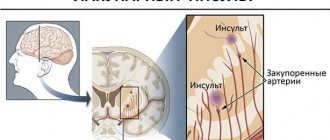What is a fugue
Dissociative fugue is considered a disorder that separates a person from previous memories of past experiences, feelings, or people in their life. People suffering from it have no memory of their identity or any details of their lives.
Dissociative fugue describes the disease as follows: a split of consciousness occurs, while simultaneously reproducing actions. At the same time, people around, seeing the patient, do not understand that something is wrong with him. A common example of dissociation is driving a car and missing your turn because you are daydreaming. Thoughts inside split the consciousness about where the car was at the moment. The realization that a person has missed his turn usually puts him back on the opposite route. Thus, dissociation can occur in healthy people, but it does not last as long.
Diagnostics
For a reliable diagnosis there must be:
- signs of dissociative amnesia;
- purposeful travel outside the bounds of ordinary everyday life (the differentiation between traveling and wandering must be made taking into account local specifics);
- maintaining personal care (eating, washing, etc.) and simple social interaction with strangers (for example, patients buy tickets or gasoline, ask for directions, order food).
The diagnosis is usually made retrospectively by asking about the circumstances leading up to leaving home, traveling and starting a “new” life. If dissociative fugues recur repeatedly, a diagnosis of multiple personality disorder (MPD) is usually made.
Is it possible
After severe stress, some part of the memory is blocked and a dissociative fugue occurs. Examples from life:
- The 57-year-old husband and father of two, a Boy Scout, left the garage near his office and disappeared. Six months later he was found, living under a new name in a Chicago homeless shelter, not knowing who he was or where he came from.
- A middle-aged woman buys a newspaper to find out the date and what city she is in, and then contacts social services to determine her identity. As it turned out later, she had been considered missing for 5 years.
- Agatha Christie was perhaps the most famous writer of all time. In 1926, on the evening of December 3, 36-year-old Christie mysteriously disappeared from her home in England. The next morning, her abandoned car was found, but she was nowhere to be found. Before her disappearance, her husband Archibald was threatening divorce. On December 14, Christie was found alive and registered under the name Teresa Neil at the Harrogate Hotel. She claimed that she did not know how she ended up there. Some believe that this disappearance was a performance for PR and a reunion with her husband. However, there is evidence that Christie was in a fugue state and actually lost her memory. On the day of her disappearance, people saw her and stated that she was not wearing warm clothes, despite the cold season, she seemed confused and discouraged. There is speculation that her impending divorce and the recent death of her mother have caused her to become deeply depressed. Agatha Christie died in 1976 and took the truth about what really happened with her to the grave.
Dissociative identity disorder
This condition occurs due to a number of reasons, including stress and traumatic experiences. According to research, identity disorder occurs in adulthood and childhood; more than 90% of patients said that in their early years they were exposed to violence, experienced a lack of care, and did not feel protected. Symptoms of the disease may not appear immediately; often trauma is the trigger and the onset of pronounced symptoms is delayed by 10-20 years. Therefore, adults often seek help.
Dissociative Identity Disorder - Symptoms
There are many signs of this disease, and the main ones from the list coincide with those that are inherent in other psychiatric illnesses. Therefore, it will not be possible to independently determine dissociative syndrome; only a doctor can make an accurate diagnosis, but it is still worth knowing the list of symptoms; collectively and individually, they are a sign that you should immediately seek help. You should be wary if a friend has:
- Memory lapses or amnesia are one of the clear indicators of dissociative disorder.
- Headaches, discomfort in the body, but a medical examination did not reveal any physiological problems.
- Depersonalization. A person refers to himself in the third person or plural. Poorly connects the events of his own life with himself, claims that he has the feeling that he is observing as if from the outside, and is not a participant in the event.
- Periods of activity are replaced by inaction, apathy and reluctance to change anything.
- Derealization. Familiar objects, settings and people seem foreign, previously invisible.
Multiple Personality Syndrome
This is the second name for this disease; it is used extremely rarely officially, but it is more familiar to ordinary people than the official one. Multiple personality means that a person has not one ego, but two or more. The dominant, that is, existing initially, has its own patterns of behavior, but the acquired also controls consciousness and memory at certain moments of life. That is why gaps in memories occur; during this period, a person is controlled by the second ego.
Dissociative amnesia
This is not ordinary forgetfulness, which is normal. Psychogenic amnesia is not caused by physiological facts; its appearance is provoked by a traumatic situation associated with severe stress. During the period of symptom manifestation, a person does not remember large sections of his own life, cannot say where he was, what he did. A number of clinical cases describe that the patient does not know what happened to him during a week or a month; the events of that time are completely erased.
Dissociative disorder can be noticed by signs:
- a person cannot tell what he did for several hours, where he was;
- an acquaintance claims that he did not meet with anyone, but other people say that there was a meeting;
- a person calls places well known to him foreign, unusual, indicating that he is here for the first time, although this is not the case.
Psychogenic fugue
Another phenomenon associated with this disease. It manifests itself in an unexpected move or change of permanent residence; this is also accompanied by a complete erasure of one’s own personality; the person changes his name, occupation, and social environment. External signs of the appearance of this phenomenon are extremely subtle. Only a psychiatrist with extensive experience can notice the beginning of a change in behavior at the beginning of the process. The condition is accompanied by amnesia.
Dissociative fugue - examples:
- In 1887, a clergyman with the surname Bourne withdrew all his funds from the bank, got into a carriage and drove off in an unknown direction. After a certain time, in a completely different city, the shopkeeper Brown woke up in the middle of the night and began calling his neighbors with shouts, he claimed that he was not a merchant, he did not know how he ended up here. It turned out that this was Burn, who had been missing for some time.
- In 1985, journalist Roberts suddenly disappeared. Her search lasted for 12 years, after which she was discovered in Alaska, however, the woman herself claimed that her name was Dee, she worked as a designer and had 4 children. But psychiatrists ruled that the girl was in a state of fugue and amnesia.
What to do
Patients experiencing dissociative fugue should be under close medical supervision. The patient's medical history should be reviewed to rule out an organic cause for the disease (eg, epilepsy or other personality disorder). If no cause is found, a psychologist or other mental health professionals will interview the patient and conduct psychological evaluations. These assessments may include dissociative experiences, a structured clinical interview for a disorder called dissociative fugue. The causes and symptoms of the disease may occur with the use and abuse of certain medications and illegal drugs. For example, patients with alcohol addiction are often in a state of “blackout”, while performing some actions, and sometimes making unplanned trips; a striking example of such a dissociative fugue is the film “Enjoy Your Bath.”
Signs
A dissociative fugue may last only a few hours. A person undergoing this may appear confused and forgetful to others during that time, but after this they normalize. In cases of such short duration, the dissociative fugue may go unnoticed by others.
However, the condition can also last for weeks, months, or sometimes longer than that. A person with a dissociative fugue that lasts longer than a few hours may have the following symptoms:
- confusion
- sudden lack of attendance at work or avoidance of other places they frequent
- loss of autobiographical memory (about oneself, about other people, events in their lives, etc.)
- detachment from one's own emotions
- severe stress at work or from relationships
- confused identity
- depression, anxiety, suicidal thoughts and other mental health problems, inability to recognize loved ones
- wandering or walking places they usually do not go
Many times a person with a dissociative fugue suddenly leaves their current life and starts a new one. Their new life is usually very different from the life they left behind. For example, a Wall Street executive might leave her high-powered career in the city to become a florist in a rural town if she has dissociative fugue.
Causes
Causes
Dissociative fugue: symptoms of the disease, prevention
It is not easy to explain the cause of the fugue state, but people who suffer from the disorder have usually had some kind of serious trauma or stress in their lives. War veterans or people who have suffered extreme violence or disaster scenarios may be more prone to these symptoms. Some psychologists believe that fugue sufferers may have unresolved conflict in their lives, which can add to the likelihood of abnormal dissociation. It is possible that drug abuse may contribute to the development of this disease.
Causes
So, the main reason that provokes the appearance of a dissociative fugue is a traumatic situation, a severe life shock, severe stress, as a result of which a person seems to escape into another reality, forgetting about the problems and hardships of his previous life. A new person is created, new conditions of existence, a new truth of life in which to live more comfortably than in the previous one. Therefore, in fact, fugue as a medical precedent was most often encountered during periods of financial crises or natural disasters.
In addition to stressful situations, the appearance of a dissociative fugue is also provoked by the following reasons:
- alcohol abuse;
- substance abuse;
- the presence of an emotionally unstable, hysterical personality type;
- accompanying affective pathologies.
So, if we have figured out the reasons for the appearance of this dissociative disorder, how can we cope with the consequences, or more precisely, what kind of therapy is carried out for people who are faced with this problem?
How common is the disease?
Dissociative fugue is relatively rare, with a prevalence rate of 0.2% in the general population. The length of a fugue episode is believed to be related to the severity of the stress or trauma that caused it. In most cases, it appears as single episodes without repetition. In some cases, a person will not remember events that occurred during the fugue state. In other situations, amnesia associated with the traumatic event that initiated the fugue may persist to some extent after the episode is completed. Prevention of this disorder can be a conversation with a psychotherapist after a tragic episode in life, good family support and close, trusting relationships with friends. If there is no way out for traumatic thoughts, the brain blocks the memory for protection and amnesia occurs.
Clinical picture, specific manifestations
Dissociative fugue occurs abruptly, most often early in the morning.
A person wakes up, packs his things, buys a ticket to another city or country, withdraws all the money from his bank account and leaves. The patient's behavior appears completely adequate. Neither fellow travelers nor new acquaintances suspect that something is wrong with the person. He is able to adequately talk about the environment, discuss political events, films and books.
With a long-term disorder that lasts for months or years, patients invent a new personality and biography for themselves, master a profession, get a job and often start a new family. At the same time, former melancholic people often change their personality traits and become “the life of the party,” choosing activities related to creativity and communication with a large number of people.
All skills acquired by the patient in his “past” life, driving a car, the ability to sew or embroider, sculpt or build, are preserved, general school knowledge and knowledge acquired in adulthood are preserved.
In some cases, the invented personality turns out to be so believable that others are not aware of the forgery for years. Inconsistencies can be discovered completely by accident, when you get into an accident, try to take out a mortgage, or after any illegal actions against a patient.
From time to time, the patient has memories from real life, in a dream, or as scenes from books he has read. These moments disturb the person and lead to the return of the old personality.
A peculiarity of the condition is that in the morning, when returning to the present, the patient almost completely loses memories of the events that happened during the fugue. If the condition lasts for a long time, the failure can be long-term and the return to life is painful.
In fugues that last for years, the return to the old personality occurs gradually. The new personality, the events of recent months and years are gradually replaced by the past reality, and the condition is accompanied by:
- serious anxiety
- loss of strength and mood,
- fears,
- disorientation in space and time.
If the fugue lasts a short time, from a couple of hours to several days, the patient does not have time to make any serious changes and quickly returns to normal life. Often, both the person himself and his loved ones do not even have time to notice that the person was absent or sick with something.
When does it develop into fugue amnesia?
Patients experience a double barrier of amnesia. The first is when memories of the primary, basic personality are lost. Fugue amnesia occurs when returning to basic memories, when all information about the events that occurred during the fugue is completely lost by the patient.
The peculiarity of the condition is that with fugue, memories of all external events, political life, and skills acquired in youth and childhood are preserved. During the reverse transition, absolutely all memories acquired during the period of the disorder are lost.
It is often difficult for a person to perceive the situation that the government has changed in the country, the war has long ended, and the patient himself has aged or changed his appearance.
Which signs are not symptoms of this disorder?
Dissociative fugue always occurs against the background of severe psychological experiences, but there is no brain damage. All amnesias based on organic brain damage, head trauma or poisoning, even accompanied by loss of personality, cannot be considered symptoms of a dissociative fugue.
Psychology according to Freud
Freud suggests that psychogenic amnesia is an act of self-preservation, where the alternative may be traumatic anxiety or even suicide. Unpleasant, unwanted or psychologically dangerous memories are blocked from entering consciousness. Neurologically, normal autobiographical memory processing is inhibited by imbalances of stress hormones such as glucocorticoids and mineralocorticoids in the brain, especially in regions of the limbic system involved in memory formation.
Such repressed memories may be recalled spontaneously by a particular smell, taste, or other identifier, years or decades after the event. Because this is due to psychological rather than physiological causes of psychogenic amnesia.
Escape from stress
It has now been established that dissociative fugue occurs against the background of unfavorable life events. They can be anything: job loss, divorce, death of a loved one, chronic stress, the situation can be aggravated by existing mental pathologies. The duration of such disorders varies over a huge time range: from several hours to several years. According to the World Health Organization, this disease occurs in no more than 0.2% of the world's population.
As a rule, a person who exhibits a dissociative fugue suddenly leaves his/her current place of residence. The final destination can be either an area previously visited by a person or a completely new one. Experts cannot yet explain how such a choice occurs. One thing is clear to them: the individual is controlled by the unconscious, whose task is to forget everything associated with the traumatic experience and rid the psyche of unbearable experiences.
The onset of this disease in 90% of cases occurs in the morning. As in Bourne's example, a person is vaguely aware of his identity for a while (the preacher was able to withdraw money from his bank account), after which amnesia sets in. The patient nevertheless behaves consciously and organizedly, without standing out among others. Often, he can easily settle in a new place and even start a family if the fugue lasts for a long time. Old memories are usually gradually replaced by false ones. Problems in communication usually do not arise, but they may appear if a person suffering from dissociation contacts official authorities.
In most cases, the intellectual sphere in such a mental disorder is not impaired; the person retains knowledge in general areas - arithmetic, geography, art, history, politics. In other words, he remembers almost everything that is not related to his personal life, the patient also does not lose previously acquired skills, be it driving a car or skiing. True, from time to time real memories still break into the patient’s consciousness, most often at night, which causes him serious discomfort.
A person can leave a state of dissociative fugue as suddenly as he entered it. A favorable time for this is after waking up. Lost memories can also be brought back by saying his own name or visiting familiar places. After the return of memory, a person most often forgets everything that happened to him during a mental disorder. If the fugue lasted more than a year, then the return to familiar reality can occur gradually.
Dissociative fugue: symptoms, treatment
When treating dissociative fugue, the focus should be on helping the patient come to terms with the traumatic event or stress that caused the disorder. This can be achieved through various types of interactive treatments that explore the trauma, and work must also be done to build the patient's coping mechanisms to prevent further recurrence. Some therapists use cognitive therapy, which focuses on changing maladaptive thinking patterns. It is based on the principle that inappropriate behavior, in this case a fugue episode, is initiated by inappropriate or irrational thinking. The cognitive therapist will try to change these thinking patterns (also known as cognitive distortions) by exploring the reasonableness and validity of the assumptions behind them with the patient.
Medication may be a useful adjunct to treat some of the symptoms a patient may experience in relation to dissociative episodes. In some cases, certain antidepressants or anti-anxiety medications may be prescribed.
Reflection in culture
The phenomenon of dissociative fugue has become the object of many cultural areas. For example, in cinema, this theme is revealed in such films as “Planet Ka-Pax”, “Lost Highway”, “House of Dreams”, “United States of Tara”.
In addition to the fact that dissociative fugue is a form of psychological disorder, there is also a musical form that also serves as the name of musical works with this form. A notable feature of such works is the composer’s development of one main theme, a melody, followed by repetition (“escape”) of this melody in other tonic voices.
One of the famous works of Johann Sebastian Bach “Prelude and Fugue in C major” is presented below at the link:
We recommend that you listen to this piece of music not only because this example of musical form will to some extent allow you to better understand the essence of such a phenomenon as dissociative fugue, but also because Bach's music will allow you to relax and unwind a little. After all, the main reason for the appearance of dissociative disorder is still severe stress. Remember that the most important thing is not getting rid of the consequences of a negative event, but preventing the occurrence of its causes.
By the way, in order to become more stress-resistant, learn to deal with apathy, as well as fear and anxiety, we recommend that you complete our six-week online program “Mental Self-Regulation”. By devoting only 25-30 minutes a day to classes, you will forget about procrastination and easily begin to take the first steps in any business.
Sometimes shocks happen in life: we learn about the death of loved ones, we are fired from an interesting job, a loved one turns out to be distant and ununderstanding, friends betray us, and plans collapse under the pressure of circumstances. All this and much more is part of a certain period of our life, and we must be strong at this time so as not to lose ourselves, not to consign to oblivion all the joy and love that actually also exists in our lives and is replete with bright colors, only here negative circumstances added a little darker tones. But remember: truly beautiful paintings combine the harmony of both light and dark tones. In this life you cannot do without sadness, but know how to move away from it.
We wish you a good mood!
We also recommend reading:
- Storytelling
- 10 Strangest Experiments in the History of Science
- How Mark Twain became a great speaker
- “Have you seen it” or Where does the deja vu effect come from?
- Worldview as a life path
- Advice from a 16th century priest on self-development
- Culture shock and how to overcome it
- Duality of personality: me or us
- The butterfly effect and its philosophical meaning
- Gratitude Skill
- Medici effect
Key words:1Self-knowledge
Treatment with therapy
Creative therapies (art therapy, music therapy) allow patients to express and channel thoughts and emotions into “safe” channels. They empower the patient by encouraging self-knowledge and a sense of control.
Group Therapy - A therapist or counselor may be helpful in supporting the patient on an ongoing basis. It also provides the patient with opportunities to gain self-confidence and interact with colleagues in a positive way.
Family therapy can be part of the treatment regimen, both in exploring the trauma that caused the fugue episode and in educating the rest of the family about the illness.
see also
- Psychological portal
- Depersonalization disorder (DSM-IV dissociative disorders 300.6)
- Dissociation (psychology)
- Dissociative disorders (DSM-IV dissociative disorders)
- Dissociative identity disorder ( formerly
multiple personality disorder) (DSM-IV dissociative disorders 300.14) - Dromomania, a similar historical diagnosis
- Psychogenic amnesia; dissociative amnesia ( formerly
psychogenic amnesia) (DSM-IV dissociative disorders 300.12) - Structured Clinical Interview for DSM-IV
- Lost Highway
, a film by David Lynch that explores the mayhem
Recommendations
- ^ a b c
Dissociative Fugue (formerly Psychogenic Fugue)
(DSM-IV 300.13, Diagnostic and Statistical Manual of Mental Disorders, Fourth Edition) - American Psychiatric Association (2013). Diagnostic and Statistical Manual of Mental Disorders: DSM-5
. Washington, DC: American Psychiatric Association. ISBN 9780890425541. - Merck management
- "What is a dissociative fugue?" WebMD
. Retrieved 2019-11-08. - "Dissociative Amnesia, DSM-IV Codes 300.12 (Diagnostic and Statistical Manual of Mental Disorders, Fourth Edition)." Psychiatryonline.com. Archived from the original on 2007-09-28. Retrieved 2011-11-28.
- Dissociative Amnesia DSM-IV Code 300.12 (PsychNet-UK.com) Archived November 28, 2010 Wayback Machine
- Complete list of DSM-IV codes (PsychNet-UK.com) Archived January 6, 2011 Wayback Machine
- "Preconditions for Dissociation (Pottergate Center for Dissociation and Trauma)." Dissociation.co.uk. Archived from the original on 2012-01-14. Retrieved 2011-11-28.
- ^ a b
Merck Manual 1999 section 15 (Psychiatric disorders), chapter 188 (Dissociative disorders) - “Experts say Roberts may actually have amnesia | The Juneau Empire is the online newspaper of Alaska's capital." Juneau Empire. 1997-07-17. Archived from the original on 2011-11-20. Retrieved 2011-11-28.
- "Show". Five
. - ^ a b
Associated Press (September 16, 2008). "Update: Missing Oregon teacher rescued from Long Island Sound." OregonLive.com. Retrieved 2013-11-16. - ^ a b
Aviv, Rachel (03/26/2018).
"How a young woman lost her identity." New Yorker
. ISSN 0028-792X. Received 2018-03-30. - "Hannah App updates her status, doesn't remember much." Gothamist
. Archived from the original on 2015-03-22. - "Life Interrupted" New York Times
. 2009-03-01. - "Missing New York City School Teacher Spotted at Apple Store." Fox News
. 2008-09-09. Archived from the original on 2013-12-22. Retrieved 2018-12-05. - Mimic, Mila (09/05/2013). "Maryland. A woman has been discovered with a rare form of amnesia.” NBC4 Washington. Retrieved 2013-11-16.
- "Hannah App of Kensington found in Wheaton, Maryland." wusa9.com. 2013-09-05. Archived from the original on 2013-12-13. Retrieved 2013-11-16.
- “The community has asked for help finding missing teacher Hannah App.” Daily News Virgin Islands
. September 19, 2021. - Staff, SUZANNE CARLSON Daily News. "Hannah App's mother asks for help finding her missing daughter." Virgin Islands Daily News
. Received 2018-03-30. - “For a man with amnesia, love repeats itself.” NPR. 2012-12-13. Retrieved 2013-11-16.
Forecast
The prognosis is quite favorable. If there are no other mental disorders, complete recovery will occur. If, before the onset of the fugue, the patient had to experience an event of high mental trauma (violence, observation of a situation of abuse, severe loss), most likely there will be a remainder of dissociative amnesia
Whether it is worth restoring traumatic memories is a purely individual decision. You should take into account how severe the events were, as well as the patient’s character traits.










